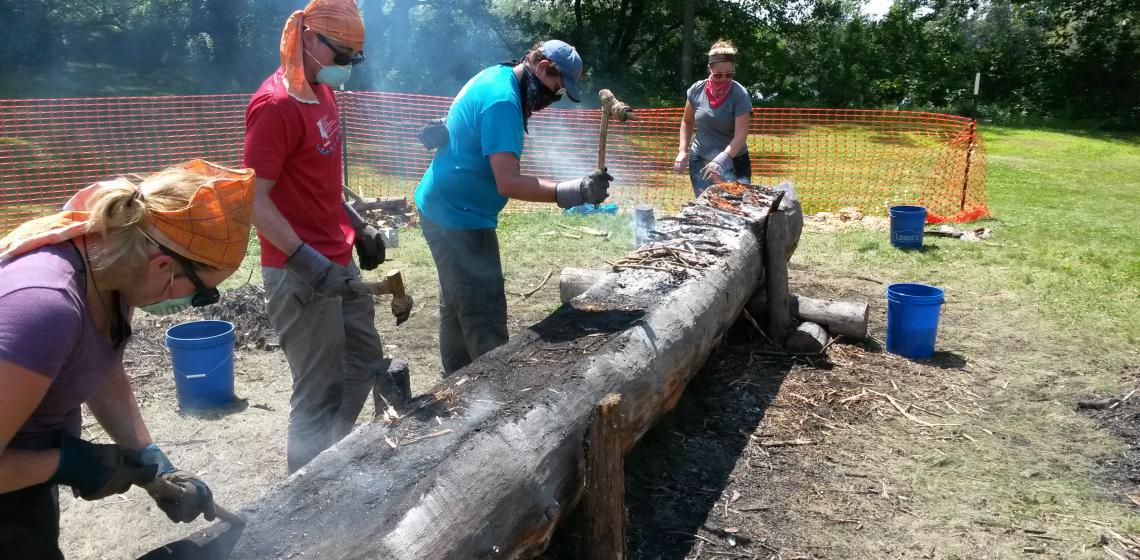
Experimental archaeology plays an important role in the Archaeological Studies program at The State University of New York at Potsdam (aka SUNY Potsdam). We are small teaching focused undergraduate institution located in the northern most region of New York State, USA.
Our faculty teach a wide variety of archaeological courses spanning time and space. We incorporate experimental and experiential archaeology into our teaching and scholarship in many different ways. In addition to a free-standing course in Experimental Archaeology, experimental and experiential activities are incorporated throughout the curriculum. For instance, students develop and carryout stone boiling experiments, prepare hickory nut soup and practice flint-knapping and traditional fire-making techniques as a regular part of their archeological course work. Experimental archaeology also serves as a methodological framework for many honor’s theses. At any given moment you might find students working on projects such as: evaluating stone projectile point ballistics; growing, harvesting and processing ancient cultigens; mummifying rats; cremating pigs; or making enormous bast fiber ropes.
We are also excited to announce a new community facing teaching and research center scheduled to launch in 2021. HEARTH (Hands on, Experiential Archaeological Research and Teaching Hub) - a part of SUNY Potsdam’s Marqusee Center for Archaeology and Anthropology - is specifically geared toward the preservation and revitalization of craft. HEARTH accomplishes this through hands-on learning/programming, digital technologies, experimental archaeology and nontraditional pedagogies led by Potsdam faculty and an assemblage of visiting master craftspeople from throughout the world. By promoting the preservation of craft, HEARTH works toward the rejuvenation of sustainable economies, cultures and ecologies. Experimental archaeology helps make the educational opportunities and research at SUNY Potsdam exceptional. Through this methodological framework we work to improve our understanding of the past and craft a better path toward the future.
SUNY Potsdam
Potsdam, NY
13697
Tim Messner